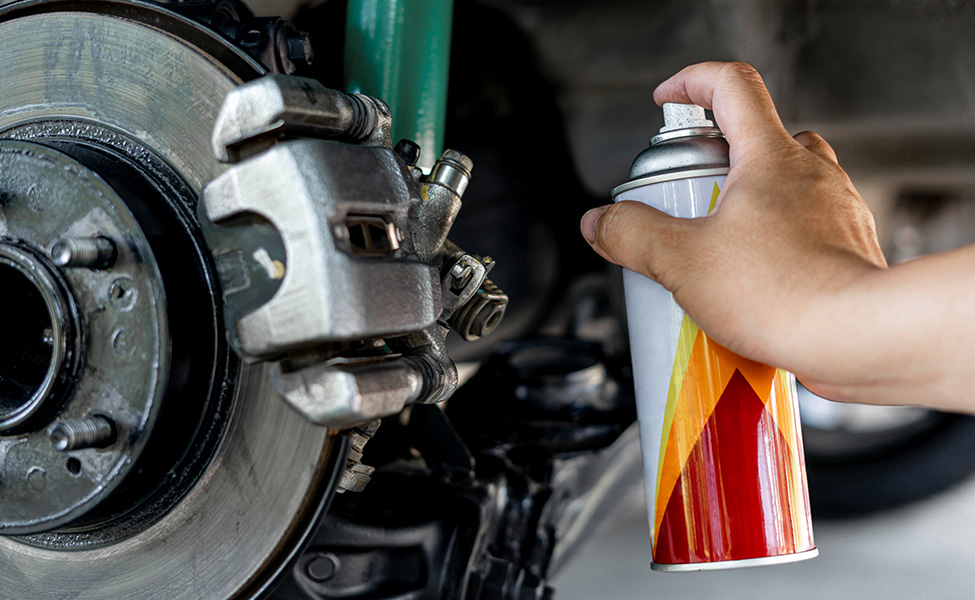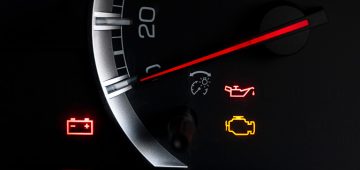The safety of your vehicle heavily relies on one crucial component – your car’s brakes. Understanding how they work and how to properly maintain them is vital for keeping you and your passengers safe on the road. From brake pads and rotors to brake fluid and calipers, each part plays a vital role in ensuring your vehicle can stop efficiently and effectively. Ignoring brake issues can lead to dangerous consequences, such as brake failure or increased stopping distances. By learning how to identify warning signs and regularly maintaining your brakes, you can ensure your vehicle’s braking system performs optimally and keeps you out of harm’s way.
Key Takeaways:
- Regular inspections: It is crucial to have your brakes inspected regularly by a professional to ensure they are functioning correctly and to catch any issues early on.
- Listen for warning signs: Strange noises like squeaking, grinding, or vibrations when you brake could indicate a problem with your brakes that needs immediate attention.
- Maintain proper maintenance: Following your car manufacturer’s recommended maintenance schedule for your brakes, including replacing brake pads, rotors, and fluid, is necessary for keeping your brakes in good working condition.
Types of Brakes
While understanding your car’s brakes, it’s important to know the different types available. The two main types of brakes commonly found in vehicles are disc brakes and drum brakes. Both serve the same purpose of slowing down and stopping your vehicle, but they work in slightly different ways.
| Disc Brakes | Drum Brakes |
| Efficient cooling | Simple design |
| Easy maintenance | Affordable cost |
| Higher performance | Less prone to overheating |
| More common in modern vehicles | Great for rear brakes |
| Quick response time | Provides consistent braking |
Disc Brakes
The efficiency and reliability of disc brakes make them a popular choice in modern vehicles. They consist of a rotor, caliper, and brake pads, which clamp down on the rotor to slow or stop the vehicle efficiently. Disc brakes are known for their quick response time and excellent performance, particularly in demanding driving conditions or emergency stops.
Drum Brakes
Drum brakes, on the other hand, feature brake shoes that press against the inner surface of a drum to slow the vehicle down. While not as efficient as disc brakes, drum brakes have a simple design that is cost-effective to maintain and replace. They are commonly used for rear brakes in many vehicles and provide consistent braking performance, making them a reliable choice for everyday driving.
Though drum brakes may not offer the same level of performance as disc brakes, they are still an important component of a vehicle’s braking system. Regular maintenance and inspection of drum brakes are crucial to ensure they function properly and provide the necessary stopping power when you need it most.
Brake Maintenance Fundamentals
Inspecting Brake Pads and Rotors
Pads: Assuming your car’s brake system is conventional, with disc brakes on the front wheels, the first step in maintaining your brakes is to inspect the brake pads and rotors regularly. Check the thickness of the brake pads – if they are less than 1/4 inch thick, they need to be replaced. Also, look out for any uneven wear or scoring on the rotors, as this can affect braking performance.
Brake Fluid: Types and Replacement
Fluid: Brake fluid is a crucial component of your car’s braking system, transferring the force you apply on the brake pedal to the brake pads. There are different types of brake fluid, such as DOT 3, DOT 4, and DOT 5.1, each with specific properties. It is necessary to replace the brake fluid according to your car manufacturer’s recommendations to maintain optimal braking performance.
- Types of Brake Fluid: DOT 3, DOT 4, DOT 5.1
- Fluid Replacement: Follow manufacturer’s recommendations
- Importance of Brake Fluid: Ensures proper brake function
- Check for Contamination: Moisture can affect brake fluid
- Brake Fluid Flush: Removes old fluid and contaminants
This ensures that your brakes work effectively and safely, especially in emergency situations. Regularly checking and maintaining your brake system can prevent costly repairs and ensure your safety on the road.
Common Brake Problems and Solutions
Dealing with Brake Noise
Notice any unusual sounds coming from your brakes? Common culprits for brake noise include worn brake pads, loose calipers, or rotor issues. To address this, have a professional inspect your brakes to determine the source of the noise. Replacing worn brake pads or fixing loose components can help eliminate the noise and ensure your brakes are functioning properly.
Addressing Brake Vibration
Commonly experienced by drivers, brake vibration can be a sign of warped brake rotors or unevenly worn brake pads. With regular use, heat buildup can cause these components to wear unevenly, leading to vibration when braking. It is crucial to address this issue promptly to prevent further damage to your braking system. A mechanic can resurface or replace the rotors and pads to eliminate the vibration and restore smooth braking performance.
Advanced Brake Care
Keep your brakes in top-notch condition with advanced brake care techniques:
- Regular Inspections: Inspect your brake pads, rotors, and calipers regularly.
- Performance Upgrades: Upgrade your brake system for better performance.
Upgrading Your Brake System
The performance of your car’s brakes can be enhanced by upgrading the brake system. This can involve installing larger rotors, high-performance brake pads, or even upgrading to a bigger brake kit. Make sure to consult with a professional mechanic to ensure compatibility and proper installation.
ABS: Understanding Advanced Braking Systems
The ABS, or Anti-lock Braking System, is a safety feature that prevents the wheels from locking up during braking, allowing the driver to maintain steering control. Understanding how your ABS works is crucial for safe driving practices.
- Prevents Wheel Locking: ABS prevents the wheels from locking up, reducing the risk of skidding.
- Enhanced Steering Control: It helps the driver maintain control over the vehicle during emergency braking.
Braking
Advanced Brake Care is necessary in maintaining the safety and performance of your vehicle. By upgrading your brake system and understanding advanced braking systems like ABS, you can ensure a safer driving experience.
- Improved Performance: Upgrading your brake system can improve stopping power and overall braking performance.
- Safer Driving: Understanding and utilizing advanced braking systems like ABS can prevent accidents and keep you safe on the road.
Final Words
With this in mind, it is crucial for every vehicle owner to understand the importance of maintaining their car’s brakes. Regular check-ups, timely repairs, and appropriate driving habits can significantly extend the life of your brake system and ensure your safety on the road. By paying attention to warning signs, keeping up with maintenance schedules, and seeking professional help when needed, you can prevent costly repairs and potentially dangerous situations. Note, your brakes are an important component of your vehicle, so treat them with care and respect to ensure a smooth and safe driving experience.
FAQ
Q: Why is it important to understand and maintain your car’s brakes?
A: Understanding and maintaining your car’s brakes is crucial for your safety on the road. Properly functioning brakes can prevent accidents and save lives.
Q: How often should I check my car’s brakes?
A: It is recommended to have your car’s brakes checked at least once a year. However, if you notice any unusual sounds or changes in braking performance, have them inspected immediately.
Q: What are the signs that indicate my brakes need attention?
A: Some common signs that your brakes need attention include squeaking or grinding noises, vibrations when braking, longer stopping distances, or a soft brake pedal.
Q: Can I inspect my car’s brakes on my own?
A: While you can visually inspect your car’s brakes for wear and tear, it is best to have a professional mechanic perform a thorough inspection to ensure all components are functioning properly.
Q: How can I maintain my car’s brakes to prolong their lifespan?
A: To maintain your car’s brakes, avoid sudden stops, drive at moderate speeds, and have your brake fluid changed regularly. Regular brake inspections and prompt repairs can help prolong the lifespan of your brakes.






